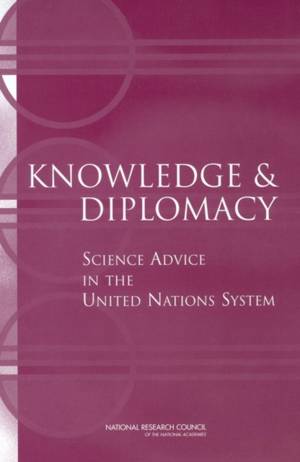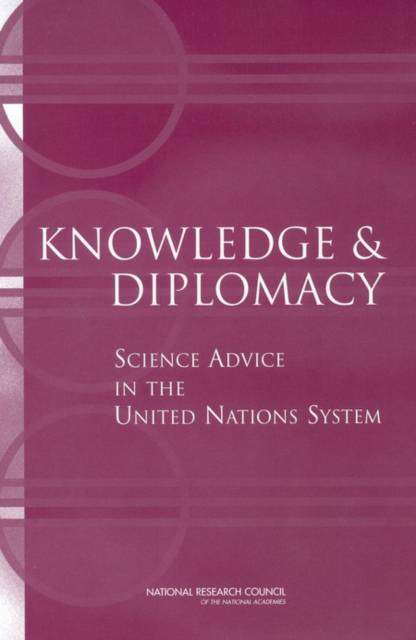
- Afhalen na 1 uur in een winkel met voorraad
- Gratis thuislevering in België vanaf € 30
- Ruim aanbod met 7 miljoen producten
- Afhalen na 1 uur in een winkel met voorraad
- Gratis thuislevering in België vanaf € 30
- Ruim aanbod met 7 miljoen producten
Knowledge and Diplomacy
Science Advice in the United Nations System
National Research Council, Policy and Global Affairs, Development Security and Cooperation, Committee for Survey and Analysis of Science Advice on Sustainab
Paperback | Engels
€ 62,45
+ 124 punten
Omschrijving
In the international effort to advance human health, welfare, and development while better managing and conserving the environment and natural resources, there is a clear and growing recognition of the role of scientific and technical knowledge in global governance. This has created an urgent need for the United Nations to equip itself with the capability to bring scientific knowledge to inform international decision making. Given the complexity and diversity of United Nations programs, organs, and mandates, this report focuses on the main functions of the United Nations that affect international governance in the fields related to sustainable development, with reference to the taxonomy of the key United Nations organs in which these functions are undertaken. Efforts have been made to ensure that the major categories of United Nations organs have been covered and therefore the results of the review are representative of the functioning of the United Nations system.
Specificaties
Betrokkenen
- Auteur(s):
- Uitgeverij:
Inhoud
- Aantal bladzijden:
- 120
- Taal:
- Engels
Eigenschappen
- Productcode (EAN):
- 9780309084901
- Verschijningsdatum:
- 16/01/2003
- Uitvoering:
- Paperback
- Formaat:
- Trade paperback (VS)
- Afmetingen:
- 216 mm x 279 mm
- Gewicht:
- 301 g

Alleen bij Standaard Boekhandel
+ 124 punten op je klantenkaart van Standaard Boekhandel
Beoordelingen
We publiceren alleen reviews die voldoen aan de voorwaarden voor reviews. Bekijk onze voorwaarden voor reviews.









